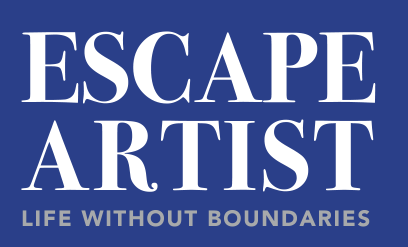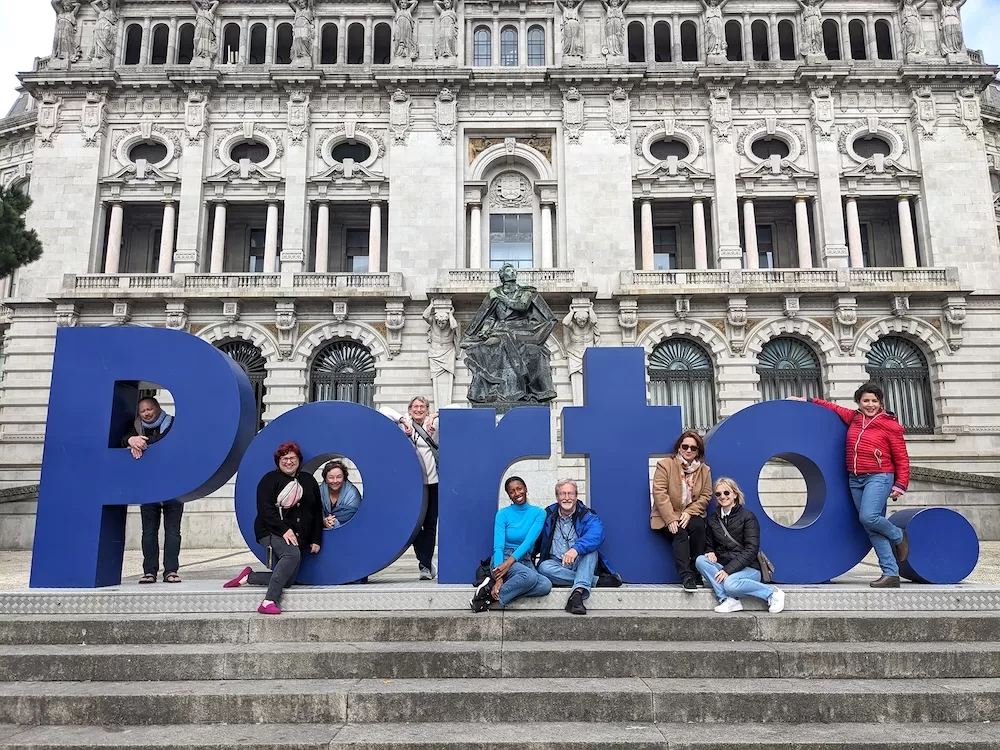The Art of Slowing Down to Build Wealth
A candid conversation between Family Office Club founder Richard Wilson and Joel Nagel

Earlier this year, Family Office Club founder Richard Wilson sat down for an in-depth discussion with Escape Artist columnist Joel Nagel, an international attorney and asset protection advisor. They touched on managing generational wealth, the importance of full transparency, how U.S. political instability is prompting Americans to consider a Plan B, and much more.
Richard C. Wilson: You’re a serial entrepreneur who has done things with a greater scale and success level than most. What advice do you have on building a business that’s successful and then finding the natural path of having one or two little offshoots that turn into major offshoots?
Joel Nagel: When building a team, I’m the first to say I can’t take the credit for anything. Everything involves the team. Our bank, for example, just received an award as the Best [Offshore] Bank in CARICOM, which is all of the Caribbean region. It took us 20 years to earn that award, so there’s no overnight magic fairy dust that’s gonna get you there. But I’d say, whatever your primary objective, you have to focus on it without distraction. As a young lawyer, you’re trying to get your practice off the ground, you have rent to pay, you have a wife and little kids at home, and you have this natural tendency to take any business that comes along, and I really resisted that. I knew the lane I wanted to be in and focused on that: when I had extra time I wrote articles; I contacted conferences about speaking on asset protection. Over time, it really paid off. It’s like a snowball, it keeps getting bigger and bigger. The other day one of my friends told me, “You have an amazing law practice because you have unlimited marketing you don’t have to pay for.” He was talking about how screwed up the U.S. is [politically], with more than half the people seemingly upset all the time. Upset people are worried about things, thinking about maybe making an investment overseas, picking up a new passport or residency somewhere.
Well, it’s working, you’re doing quite well. But you don’t come off as a hardcore Wall Street salesman who’s going to eat someone’s children for breakfast. Obviously that’s played into your success. How much of that have you learned to emphasize, or maybe be slow-paced so people don’t feel rushed?
I’m sure some of my employees would say I’m not that easy-going and relaxed. But yeah, you take the client where you find them and you’re always trying to help them get to the next level. In most cases their businesses are successful, but now they’re thinking about generational wealth stewardship, how am I going to protect and preserve my wealth to pass it on? That really should be slowed down a little bit, there’s no rush. You want to take your time and get to know people. When we start with a new client, we start by asking a million questions about them. Because I’m not really qualified to give you advice on anything unless I understand your situation first, and that’s what shows through and creates the connection in the first place.
You’ve said that in the old days, 20 years ago, people thought about global asset protection as hide and seek. But now it’s show and tell. If someone comes and looks, you can say, “This is what we have, everything was done open book.” You like to tell clients, “I don’t want to see you wearing orange one day.” That really stood out to me. What do you think is most important to communicate about asset protection?
Frequently we’ll talk to somebody and they’ll have an idea that does cross the line, and I’ll say, “Look if you want to violate the law you don’t need me. You don’t need a lawyer to break the law, you need a lawyer to help you stay within the law.” I had a journalist call me when the Panama Papers broke and asked me are you worried on behalf of your clients, and I said no absolutely not. Because for every transaction we do the proper legal reporting. If we set up a trust there’s a filing that goes with that, there’s a gift tax return. The main thing, as you say, is the show and tell, and it’s this attitude that intimidates plaintiffs and government agencies. I’ve never turned over information, never had a government agency tenacious enough to try to fight through attorney-client privilege. I’ll have clients say, “Hey, what if the NSA is listening to our call?” And I’ll say, “Well what if they are?” There’s a Supreme Court ruling, the Fruit of the Poisonous Tree, that if a government agency does something that’s illegal it can’t be used against you. So that’s the attitude we take—do things the right way, the legal way, the transparent way, and that’s what’s going to give you the protection.
One example you give is, let’s say you back over somebody’s million-dollar show dog and they start an action against you, and your assets are in Belize. Their action would be potentially against you, not the trust in Belize. They could fly down to Belize and try to file local documents against the trust. But you can respond, “What did the trust do, did the trust run over your dog?” That’s one example of how this works.
Right, when you create a trust or foundation in a place like Liechtenstein, Nevis, Belize, Cook Islands—these places are not neutral jurisdictions. We all agree the U.S. is a pro-plaintiff district. In fact, we’re the most pro-plaintiff jurisdiction in the world. People ask if I’m looking for neutral jurisdictions or systems, and I tell them we’re trying to find jurisdictions that are pro-defense. In a pro-defense jurisdiction, what they’re doing through their legislation is that it’s not enough to have a cause of action against me, you have to have a cause of action against the entity or structure itself. So the question becomes what did that structure ever do to you? It wasn’t involved in whatever the problem is. So as long as the trust is holding assets in a sort of passive way, even active businesses if they’re under a corporate structure, the trust can do that. That’s how you perpetuate wealth: you hold assets and avoid the gift and estate tax. By doing that, you can really allow assets to grow for two, three, even four generations.
You perpetuate wealth by holding assets and avoiding the gift and estate tax. That allows assets to grow for two, three, even four generations.
We’re doing this next-gen series on YouTube. So what’s something you could share with the room about next-gen planning, something you learned with your own family?
I was really just a poor farm kid in western Pennsylvania, never had two nickels to rub together. I always thought when I was little it would be so cool to be a millionaire. Well I’ve more than exceeded that many times over. Now I want what’s best for my children. I wanted to make sure they had every advantage. But I don’t want them to turn into trust-fund babies who are laying around on yachts. Two of my boys work in my businesses. One of them, my son Joe, is here. Jokingly he said at dinner last night that his job is to fix the computer, the pass codes, the IT, but it’s not really true, he does way more than that. But I think it’s about making sure they understand the advantages they have had. My oldest son graduated from medical school. He’s in his residency now and he called me up one day and said, “Dad, I’ve never really properly thanked you. I was talking to some friends and they were telling me about their student loan debt. They have $300-, $400-, $500,000 dollars in student debt. And I really appreciate what you’ve done for me in letting me start life without debt.” And I said “Great, now you have the capacity to make a lot of money, so don’t come asking me for more.”
It’s trying to teach them to get to the next level themselves, and for me personally, having two of my sons work in my business has been one of the most interesting things for me. I have achieved every goal I ever set. I could have retired years ago, and working with them is now the most important thing. It gives joy to my day seeing them take the mantle. ■
Editors note: this interview has been condensed, edited, and restructured for clarity.
————–
Richard C. Wilson is the CEO of the Family Office Club, an ultra-wealthy investor group with more than 7,500 investors that hosts 16 in-person events per year. He also owns billionaires.com where he interviews billionaires publicly to share their investing strategies.
Richard C. Wilson































